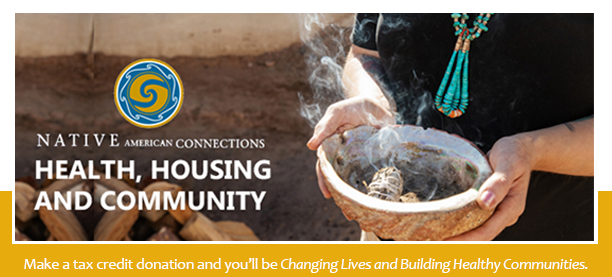trophyCongratulations 2024 Parade Winners! Join us in cheering on our winners - read the list here.

Save on Taxes & Make a Difference!
Arizona provides two separate tax credits for individuals who make contributions to charitable organizations: one for donations to Qualifying Charitable Organizations (QCO) and the second for donations to Qualifying Foster Care Charitable Organizations (QFCO). Individuals making cash donations made to these charities may claim these tax credits on their Arizona Personal Income Tax returns.
Effective in 2018, the Arizona Department of Revenue has assigned a five (5) digit code number to identify each Qualifying Charitable Organization and Qualifying Foster Care Charitable Organization for Arizona tax credit purposes on Form 321 and Form 352, which is included with the Arizona income tax return. Taxpayers must use the “QCO Code” or “QFCO Code” of certified organizations to claim the tax credits for contributions QCOs or QFCOs. The department’s lists of qualifying charities include the code assigned to each organization.
The Arizona Department of Revenue advises taxpayers they now have until May 17 to contribute to certified qualifying charitable organizations, qualifying foster care charitable organizations, school tuition organizations, and public schools and claim the tax credits on their 2020 individual income tax return.
Credit for Contributions to Qualifying Charitable Organizations: this individual income tax credit is available for contributions to Qualifying Charitable Organizations that provide immediate basic needs to residents of Arizona who receive temporary assistance for needy families (TANF) benefits, are low income residents of Arizona, or are individuals who have a chronic illness or physical disability. The tax credit is claimed on Form 321. The maximum credit allowed is $800 for married filing joint filers and $400 for single, heads of household, and married filing separate filers.
[Info from azdor.gov]
Friends and Family of Native American Connections,
As we approach the end of the year I extend my gratitude to you. Without your financial support, NAC would not be able to meet the needs of our community nor provide the shelter or services which stabilize and empower those who need us.
With your continued support NAC is better poised to meet the needs of homeless youth, homeless veterans, people struggling with substances, people who need access to culturally appropriate healthcare and housing, and people who simply need a hand up, not a hand out.
This giving season I ask that you support NAC and our continued efforts by designating your Arizona Charitable Tax Credit to Native American Connections, a qualifying charitable organization (QCO #20537). Visit the link below to donate today, save on taxes, and make a difference in your community. Learn more about giving to NAC via Arizona's tax credit program with the info above.
On behalf of all of us who work to fulfill this mission of giving dignity to those who need it most, I thank you.
Sincerely,

Diana "Dede" Yazzie Devine
Our traditions are the foundation of our organization - explore, learn, and utilize resources available for all.

Get the support you need with health, housing, and community services available at Native American Connections.

Your support changes lives and builds healthy communities. Find ways to get involved.

A "chronically homeless" individual is defined to mean a homeless individual with a disability who lives either in a place not meant for human habitation, a safe haven, or in an emergency shelter or in an institutional care facility if the individual has been living in the facility for fewer than ninety (90) days and had been living in a place not meant for human habitation, a safe haven or in an emergency shelter immediately before entering the institutional care facility. In order to meet the ‘‘chronically homeless’’ definition, the individual also must have been living as described above continuously for at least twelve (12) months or on at least four (4) separate occasions in the last three (3) years, where the combined occasions total a length of time of at least twelve (12) months. Each period separating the occasions must include at least seven (7) nights of living in a situation other than a place not meant for human habitation, in an emergency shelter or in a safe haven.
Federal nondiscrimination laws define a person with a disability to include any (1) individual with a physical or mental impairment that substantially limits one or more major life activities; (2) individual with a record of such impairment; or (3) individual who is regarded as having such an impairment. In general, a physical or mental impairment includes, but is not limited to, examples of conditions such as orthopedic, visual, speech and hearing impairments, cerebral palsy, autism, epilepsy, muscular dystrophy, multiple sclerosis, cancer, heart disease, diabetes, Human Immunodeficiency Virus (HIV), developmental disabilities, mental illness, drug addiction, and alcoholism.